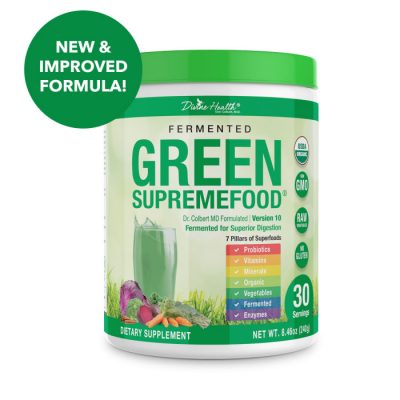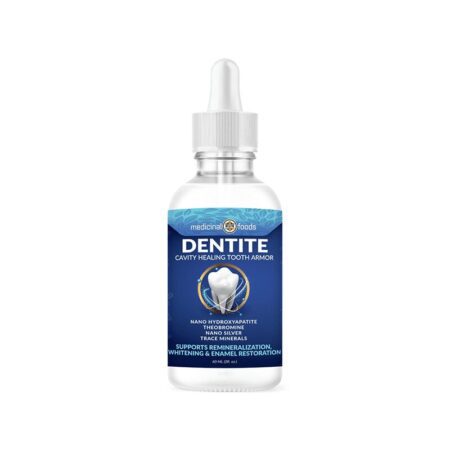Probiotics for kids may have an impact on the microbiome’s overall health.
They actually have a profound influence on kids.
These supplements or improved foods contain living microorganisms such as yogurt and lactobacillus, contributing to the kid’s body’s microbial balance.
The presence of these beneficial bacteria in a kid’s system may help eradicate harmful bacteria, thereby reducing infections and a variety of other health issues.
Are probiotics good for kids?
Probiotics may be beneficial for kids, according to certain studies.
One study revealed that kids who received probiotics every day for three months were less likely to suffer from respiratory issues and diarrhea than those who received a placebo.
Probiotics may also lessen the likelihood that kids would develop conditions such as autoimmune diseases, allergies, and asthma, although more research is needed in this area.
However, some researchers believe that probiotics may have little impact on children’s health.
They may simply be discarded as normal waste since their microbiome hasn’t fully grown.
Although it is commonly believed that the microbiome settles around the age of three, some evidence contradicts this.
One study discovered that a child’s microbiome (aged 7-12) was still significantly different from that of an adult in terms of composition and functional characteristics.
With rare exceptions, probiotics are deemed safe for children.
If your kid is premature, has cancer, or has a damaged immune system, you should not give them probiotics. In these circumstances, probiotics may put kids at risk for infection.
Probiotics are added to some foods like yogurt and cultured cottage cheese.
Fermented foods such as buttermilk, kefir, and sauerkraut naturally contain probiotics like this one. Another source is unpasteurized milk-based raw cheese.
Although some health professionals believe that raw milk and products derived from it are beneficial to human health, this should not be given to children.
Bacteria can be dangerous in raw milk. It has the potential to result in life-threatening illnesses.
If you’re wondering whether probiotic supplements or foods are the best, the answer is not straightforward.
Obtaining nutrients through whole foods is usually the best option. However, in the case of probiotics, your child may be unable to obtain sufficient amounts through food alone.
Probiotics contained in foods may be destroyed during manufacturing and storage. Unless you have a laboratory at home, there is no way to determine how many of them survived.
A lack of regulation means that supplements are not safe to take. When you buy probiotic supplements, you expect to get what you paid for. It’s possible that you won’t get exactly what you paid for.
As a dietary supplement, probiotics can improve digestion and immune system function and treat or prevent several diseases.
When it comes to potty training, they’re particularly helpful for children with diarrhea or constipation.
Probiotics may help with irritable bowel syndrome and inflammatory bowel disease. Probiotics can also benefit children who are already receiving antibiotics.
If your child has a persistent ear infection, dental ailment, or any other condition that requires an antibiotic, probiotics may help alleviate (or even eliminate) the negative effects.
The negative effects of antibiotics, such as nausea, constipation, and diarrhea, can be alleviated with probiotics.
Probiotics may help children with low immune systems or who are more vulnerable to stomach bugs and other infections.
Some probiotics, for instance, have been reported to lessen the duration of a stomach bug in situations involving children with acute gastroenteritis.
Few parents often rely on reflux meds for their children, and to some extent, this is understandable for various reasons.
First and foremost, parents need to be more cautious. PPIs, or Proton Pump Inhibitors, are the most widely prescribed medications for infants with gastroesophageal reflux disease (GERD).
PPIs have not been proved to cure the fundamental cause of the disease; therefore, they only provide short-term relief from the immediate symptoms.
In addition, some clinicians prescribe PPIs to children with asthma or GERD because they believe that reducing the stomach’s acid will help both conditions; however, this has not been demonstrated in numerous trials.
Autistic children have a distinct microbial makeup from normal children.
Short-chain fatty acids and Bifidobacteria, typically found in healthy newborn guts, are reduced in concentration in these kids.
There is a lack of research on specific strains of probiotics for autism, and the results have been inconsistent.
Good probiotics for kids
This Greens blend is the best way to boost healthy gut flora in kids… becasue it tastes so good, they will actually drink it!

ORDER Divine Health Fermented Green Supremefood by Dr. Colbert MD
Because supplements may not be regulated, getting probiotics from natural sources is safer.
Nevertheless, some natural sources of probiotics may contain allergies, so carefully examine the ingredient lists of probiotics before using them.
Probiotics can be found in a variety of foods, including:
Yogurt: This widely available milk product is well-known for its helpful microbial colonies. Yogurt contains Lactobacillus acidophilus or Lactobacillus bulgaricus bacteria that aid in the conversion of lactose in milk to lactic acid. Because of its bland flavor, yogurt is adaptable and can be blended with fruits to provide a nutritious snack. On the other hand, plain yogurt is preferred over the artificial flavors available on the market.
Kefir: Lactobacillus kefiri is the bacteria in this milk product. It is available in both animal and plant-based milk varieties. Fermented, thickened, and filtered milk yields kefir grains that can be added to plain milk to boost its probiotic content.
Buttermilk: Unflavored, diluted yogurt in the form of Indian buttermilk and its variants, such as lassi and chaas, is an excellent source of probiotics. On the other hand, cultured buttermilk does not appear to have many probiotic benefits.
Viili: Fermented with Lactobacillus, Viili is a ropey-textured Finnish milk product.
Pickles and other fermented dishes: If you’re looking for probiotics in your diet, pickles made without preservatives like sodium benzoate can be a great option. Curtido and sauerkraut from Germany and France, kimchi from Asia, and curtido from Central America are good probiotic sources.
Lebne: It is a Middle Eastern yogurt cheese with a thick consistency given the absence of whey. Additionally, it is referred to as Greek yogurt or strained yogurt, and it has an acidic flavor.
Precautions
Here are some measures to consider while administering probiotics to a kid:
There is no industry-wide standard for probiotic supplements. They are available as dietary supplements, culinary products, or pharmaceuticals. Since dietary supplements sold as food products may not be FDA-approved, they may include uncontrolled bacteria that might cause unwanted effects.
Always read the product label and administer the probiotic according to the dosage suggested by a medical practitioner. Although there are no documented adverse consequences of probiotic overdoses, their ingestion may induce modest gastrointestinal issues.
There is no one-size-fits-all dosage because each person’s microbiota is unique.
If you observe any adverse effects, stop giving the probiotic.
Certain probiotics may require sterile storage or refrigeration to prevent the organisms from dying.
Check the label for allergies.
Because they cannot cure diseases, probiotics should not be used in place of prescription drugs. Probiotic supplements that make false claims regarding their products should be avoided.
Chewable tablets may be administered to children two years of age and older.
Tiny tablets that are easily ingested may be given to children aged three years and older.
Bottom Line
All parents want to promote their children’s health, and one of the most critical ways to do so is to begin on the inside – with their gut health.
Poor gut health can have a negative impact on digestion, immunity, skin health, and mental wellness.
Probiotics can be an easy way for them to enhance their gut flora as part of their regular wellness practice.
When selecting a probiotic supplement, it is critical to evaluate the strain as well as the number of CFU (colony forming units or probiotics).
Certain bacterial strains may be advantageous for various health conditions.
Consult your child’s healthcare provider to determine which strain and number of CFUs are acceptable for your kid’s age and size.
If you have read far, there is no doubt you are now well-informed and persuaded that probiotics are beneficial for your kids.
Choosing probiotic bacteria that have been widely studied on children is always the best option.
When giving them a probiotic, you should only be concerned if your child has a major sickness or an impaired immune system.
Always consult with a doctor before using probiotics for kids.


















